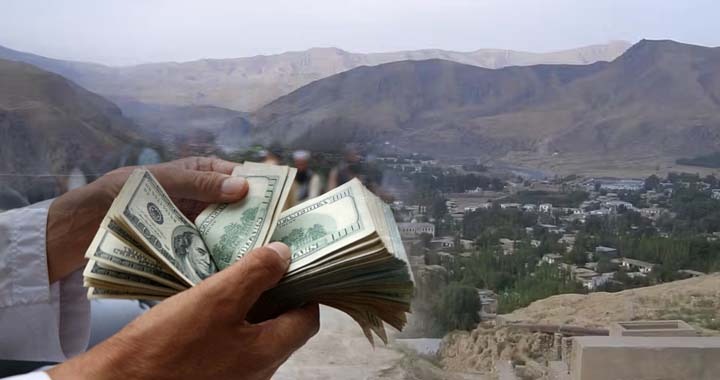It has now been more than two weeks since these fresh violent clashes erupted in Badakhshan’s Shahr-e-Bozorg district, again revealing the deep fissures and corruption eating away at the Taliban’s core. Local sources report that on Wednesday morning, October 27, Taliban forces once more engaged in heavy fighting with the men of Abdul Rahman Ammar, the former head of the Taliban’s mines in the province. While casualty figures remain uncertain, eyewitnesses confirm that Ammar’s forces have been surrounded by expeditionary units sent by the Taliban administration.
Informed sources in Badakhshan’s capital told local media outlet that Fasihuddin Fitrat, the Taliban’s chief of staff, personally arrived in the province on Tuesday in an effort to mediate and end the ongoing conflict. His attempts, however, have so far failed to produce any breakthrough, and the clashes continue to spread.
According to locals, Abdul Rahman Ammar’s men are entrenched in the surrounding mountains and still command significant grassroots support. Ammar’s fighters and those loyal to Shafiqullah Hafizi — the current Taliban head of mines in Badakhshan — have been locked in a prolonged and bloody battle over the control of lucrative gold deposits. Though both sides claim loyalty to the Taliban administration, their real motives appear to revolve around money and personal influence, rather than governance or service to the Afghan people.
Despite his current position, Fitrat is believed to have longstanding ties with Ammar, who served under his supervision in the past. The Taliban’s leadership in Kabul, meanwhile, has remained conspicuously silent on the matter, refusing to issue any official statement.
Earlier this week, Taliban “Border Brigade” forces were deployed in support of Hafizi’s faction, escalating the fighting. Reinforcements from the provincial center have since been rushed to the area. Reports indicate that at least three people have been killed so far — including Abdul Aleem Hamidi, operations commander of the Taliban’s first brigade. The Taliban are now seeking to arrest Ammar, branding him an “insurgent,” though locals interpret this as an internal power struggle over profit rather than any real attempt at law enforcement.
For years, the Taliban have treated Afghanistan’s natural wealth as their private treasury — looting mines, smuggling minerals, and enriching commanders while ordinary Afghans live in deprivation. In Badakhshan and beyond, these internal disputes over gold, gemstones, and other resources have become routine, exposing the moral rot and greed entrenched within the group’s hierarchy.
A new United Nations report, released very recently, warns that the Taliban are blatantly defying their own amnesty promises through killings, torture, and arbitrary detentions — clear evidence of their disregard for Afghan lives and human rights. Their actions demonstrate that they are willing to torture, coerce, and kill even their fellow Afghans to maintain dominance and secure wealth.
Adding to these concerns is the Taliban’s increasing coziness with India. Despite years of railing against “foreign influence,” the group has now aligned itself with New Delhi — reportedly for billions of dollars in promised economic assistance. Their duplicity was evident in the failure of the Istanbul Talks, which many diplomats believe collapsed primarily due to Taliban intransigence — arguably at India’s behest. For money, it seems, the Taliban are willing to betray anyone, even those who once sustained them. Ironically, after receiving decades of support, protection, and sanctuary from Pakistan — their principal benefactor through every hardship — the Taliban now appear poised to turn their hostility toward Islamabad, waging a campaign of defiance against the very hand that fed them.
The ongoing bloodshed in Badakhshan thus reflects a larger truth: the Taliban’s commitment is not to Afghanistan or its people, but to power and profit. Their readiness to shed Afghan blood, plunder national resources, and sell political loyalty to the highest bidder lays bare their moral bankruptcy. As Taliban commanders fight each other for gold and influence, it is ordinary Afghans — their homes, their dignity, and their future — who continue to pay the ultimate price.





